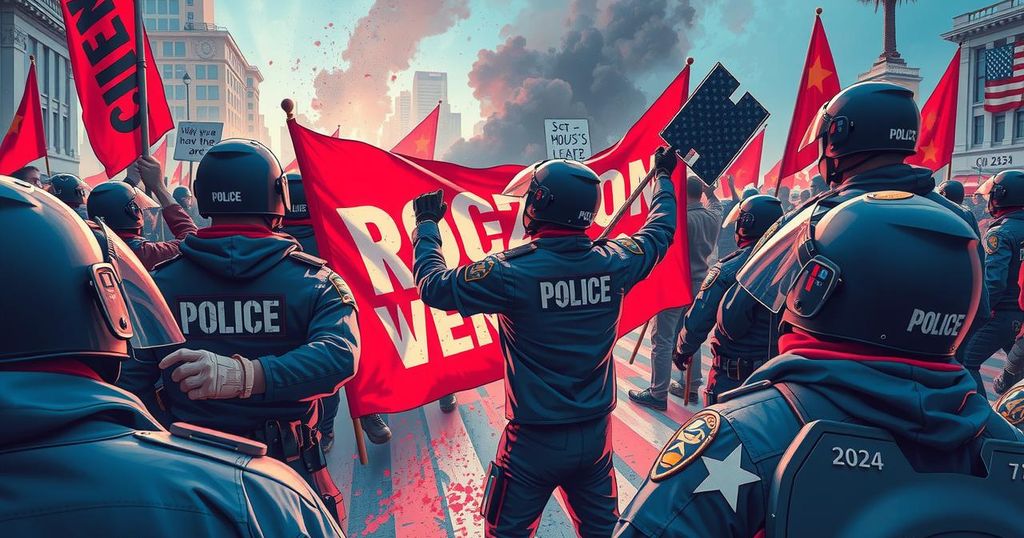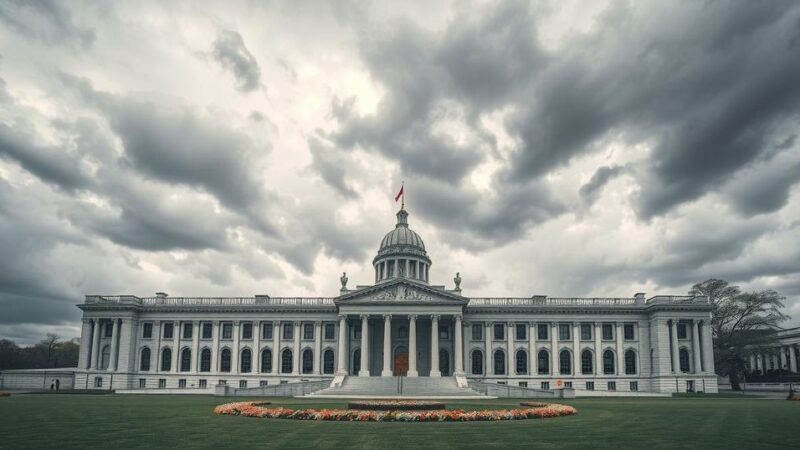Recent protests in Buenos Aires culminated in violence as pensioners and football fans clashed with police against austerity measures implemented by President Milei. The demonstrations were fueled by frustrations over pension cuts, leading to arrests and injuries, including severe incidents of police brutality. Rising tensions may signal further unrest as Argentina grapples with a deepening economic crisis.
On Wednesday, violent protests erupted in Buenos Aires as at least 15 people were injured and over 100 arrested. The initial demonstration was organized by retirees opposing pension cuts but gained momentum when football fans from various clubs joined in solidarity. The protesters gathered near the National Congress to express their dissatisfaction with President Javier Milei’s austerity measures, leading to confrontations with police.
Riot police utilized tear gas, rubber bullets, and water cannons to disperse the crowds, prompting demonstrators to respond with stones and firecrackers while displaying national flags and imagery of football icon Diego Maradona. The unrest culminated in running battles with law enforcement, reflecting the heightened tensions regarding austerity policies affecting vulnerable populations.
Among those injured was a police officer who sustained a gunshot wound, and a photographer was critically injured during the protests. Public outrage intensified with the emergence of videos showing police brutality against elderly protesters, including one incident where an elderly man was assaulted, and an elderly woman was pushed to the ground, resulting in a visible head wound.
The protests stemmed from retirees’ ongoing struggles with government-imposed pension cuts that have significantly compromised their ability to meet basic needs. The economic reforms instituted by President Milei, which prioritize curbing inflation and stabilizing the economy, include reductions in subsidies and pension freezes. With almost 60% of retirees living on a meager monthly pension of approximately $340, discontent has surged.
Further aggravating the situation, the Ministry of Security implemented a ban preventing individuals involved in public disturbances from attending football matches, leading to significant backlash from football supporters who perceived this as an infringement on their rights. The streets turned chaotic as protesters set fires and established barricades.
Protesters chanted against President Milei, drawing historical parallels between his governance and the oppressive military dictatorship of 1976-1983. Minister of Security Patricia Bullrich defended the police response, emphasizing their commitment to maintaining order, yet human rights organizations criticized the government for heavy-handed tactics against demonstrators. As economic hardships worsen, many express concerns that unrest may escalate further in the upcoming weeks.
The protests in Argentina highlight the escalating tensions between citizens and the government due to harsh austerity measures impacting retirees and vulnerable populations. The violent clashes between protesters and law enforcement, coupled with public outrage over police brutality, underscore the growing discontent regarding President Milei’s economic reforms. As the economic crisis deepens, there remains a significant concern that the unrest may intensify in the coming weeks, reflecting widespread frustrations across the nation.
Original Source: www.newsx.com






